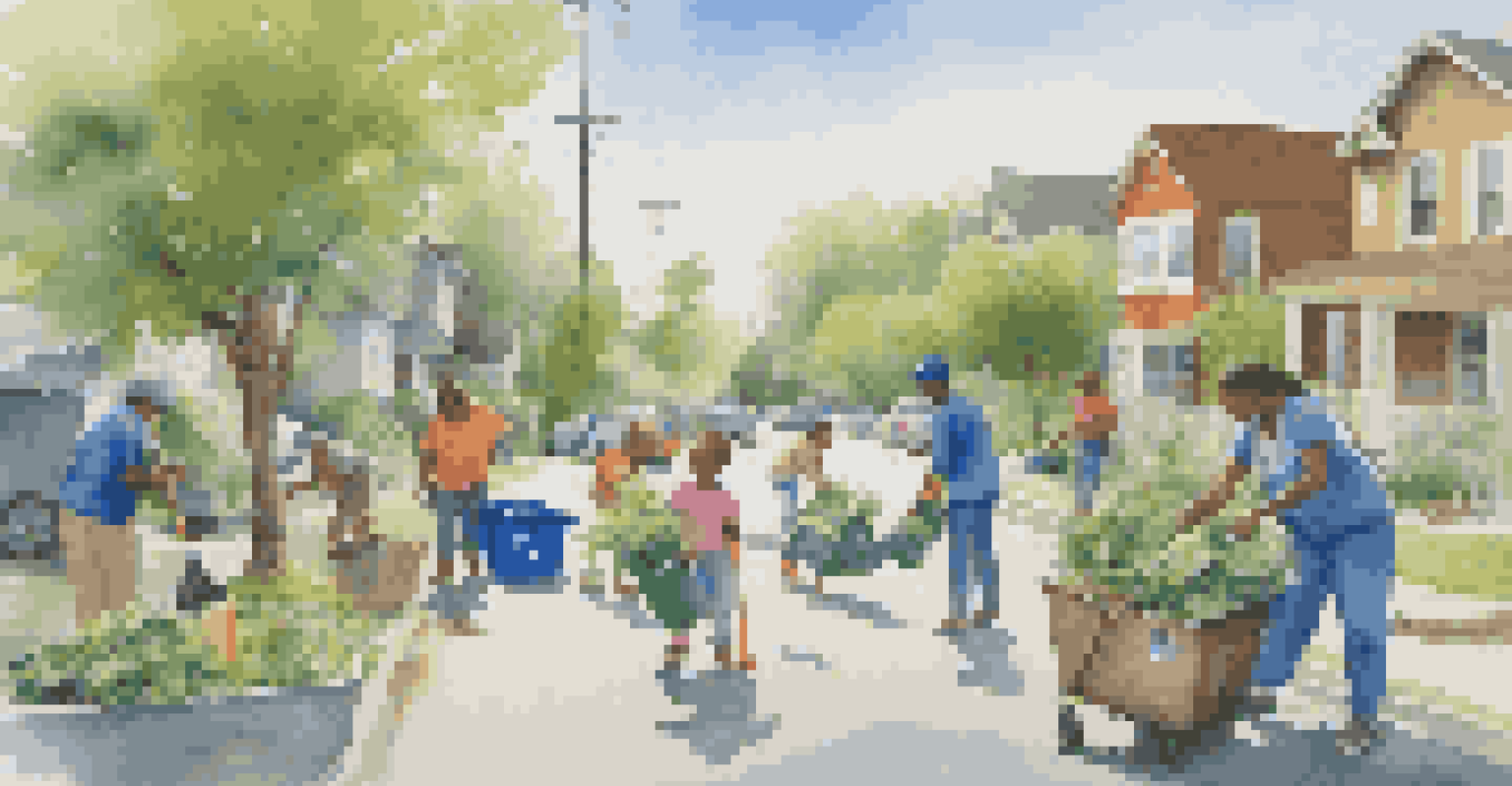The Role of Social Learning in Shaping Public Policy

Understanding Social Learning and Its Importance
Social learning refers to the process of learning behaviors, norms, and values through observation and interaction within a community. It plays a crucial role in shaping how individuals and groups adapt to their environments. By observing others, people can adopt new practices and ideas without having to experience everything firsthand, making it a powerful tool in public policy development.
We learn from failure, not from success! The most important thing is to be honest with yourself and those around you.
In the realm of public policy, social learning helps bridge the gap between theory and practice. Policymakers can learn from successful initiatives in other regions or countries, adapting these strategies to fit local contexts. This adaptation is essential for creating effective policies that resonate with the community's needs and values.
Moreover, social learning fosters collaboration among stakeholders, including government agencies, non-profits, and the public. When these groups share experiences and insights, they can collectively refine policies, ensuring they reflect diverse perspectives and are more likely to achieve desired outcomes.
The Role of Community Engagement in Policy Development
Community engagement is a vital aspect of social learning that significantly impacts public policy. When community members actively participate in discussions and decision-making processes, their insights and experiences shape the policies that affect their lives. This engagement not only empowers individuals but also enhances the overall effectiveness of policies.

For example, public forums and workshops allow citizens to voice their opinions and share their knowledge. Policymakers can then harness this grassroots information to identify pressing issues and craft policies that address them. This collaborative approach ensures that policies are grounded in real-world experiences rather than abstract theories.
Social Learning Shapes Policies
Social learning enables policymakers to adapt successful strategies from different regions, ensuring policies resonate with community needs.
Furthermore, engaging communities fosters a sense of ownership and accountability. When individuals feel that they have a stake in the policy-making process, they are more likely to support and comply with the resulting policies, leading to better implementation and outcomes.
Case Studies: Successful Social Learning in Action
Examining case studies where social learning has influenced public policy offers valuable insights. For instance, the successful implementation of recycling programs in various cities often stems from social learning. Residents observe their neighbors participating in recycling and are more likely to adopt similar behaviors, leading to increased community participation.
The greatest danger in times of turbulence is not the turbulence; it is to act with yesterday's logic.
Another example is the spread of health initiatives, such as vaccination drives. When individuals see their peers getting vaccinated and discussing its benefits, they are more inclined to participate. This social proof helps reduce vaccine hesitancy and fosters a healthier community.
These case studies illustrate that social learning not only shapes individual behaviors but also drives collective action, ultimately influencing policy decisions that benefit the broader society.
Challenges of Integrating Social Learning in Policy
While social learning offers numerous benefits, integrating it into public policy can present challenges. One significant hurdle is the diversity of community perspectives, which can complicate consensus-building. Policymakers must navigate differing opinions and interests to develop policies that are inclusive and effective.
Additionally, the speed at which social learning occurs can be a double-edged sword. In today's digital age, information spreads rapidly, which can lead to misconceptions or polarized views. Policymakers must be vigilant in ensuring that accurate information is disseminated and that harmful narratives are addressed.
Community Engagement is Key
Active participation from community members in policy discussions enhances the effectiveness and relevance of public policies.
Lastly, institutional resistance may arise when trying to incorporate social learning into traditional policy-making processes. Established practices can be difficult to change, but fostering a culture of openness and adaptability is essential for leveraging social learning's full potential.
The Influence of Digital Platforms on Social Learning
Digital platforms have transformed the landscape of social learning, providing new avenues for information sharing and community engagement. Social media, for instance, enables individuals to connect and discuss policy issues in real-time, facilitating rapid dissemination of ideas and collective learning. This interconnectedness can amplify the impact of social learning on public policy.
Moreover, online forums and webinars allow policymakers to engage with citizens directly, gathering feedback and insights that can inform policy decisions. These platforms create opportunities for dialogue that might not occur in traditional settings, breaking down barriers between policymakers and the public.
However, the challenge remains in ensuring that these digital spaces promote constructive discussions rather than fostering division. Cultivating a respectful and informed online environment is crucial for maximizing the benefits of social learning in public policy.
The Future of Social Learning in Public Policy
Looking ahead, the role of social learning in public policy is likely to grow as communities become more interconnected. Policymakers will need to embrace innovative approaches that leverage social learning to address emerging challenges. This may involve utilizing technology to facilitate engagement and collaboration across diverse populations.
As the landscape of public policy continues to evolve, understanding the dynamics of social learning will be essential for creating adaptable, responsive policies. By prioritizing community input and experiences, policymakers can develop solutions that are more in tune with the needs of their constituents.
Digital Platforms Enhance Learning
Digital platforms facilitate rapid information sharing and engagement, making social learning more accessible and impactful in public policy.
Ultimately, the future of public policy will require a commitment to continuous learning and adaptation, recognizing that social learning is not just a tool but a vital component of effective governance.
Conclusion: Embracing Social Learning for Better Policies
In conclusion, social learning plays a pivotal role in shaping public policy and fostering community engagement. By understanding and incorporating social learning principles, policymakers can create more effective, inclusive, and responsive policies. This process not only benefits individuals but also strengthens the fabric of society as a whole.
Embracing the lessons from social learning encourages a collaborative approach to governance, where diverse voices are heard, and collective wisdom is valued. As we navigate the complexities of modern governance, the insights gained from social learning can guide us toward more equitable and sustainable policies.

Ultimately, the integration of social learning into public policy development is more than a strategy; it is a commitment to building a better future for all through shared knowledge and experiences.